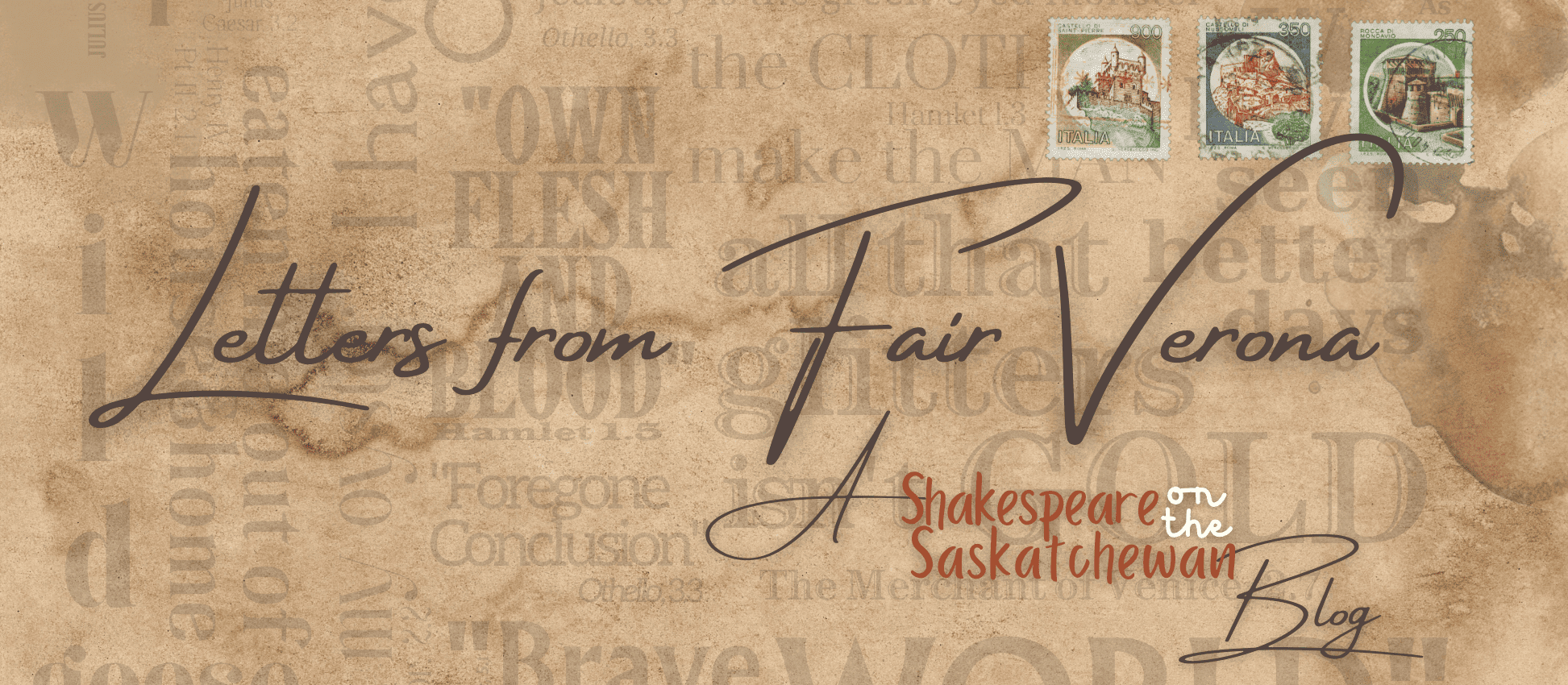
Welcome, weary travellers!
September 1, 2023
Dear Shining Saskatoon,
The goal of the 2023 Shakespeare on the Saskatchewan Festival presented by Nutrien was “bringing the light!” to Saskatoon. Not only does this satisfyingly coincide with our city’s mantra of “Saskatoon Shines!”, but it also marks a beginning of a new period — a brighter, lighter time after spending so long in the dark isolation that COVID-19 had cornered us into.
William Shakespeare was no stranger to spending time in quarantine. While an earlier, and more deadly, pandemic of the bubonic plague, commonly referred to as the Black Death, ravaged Western Europe in the 14th century and killed one-third of the European population, there would be smaller, more contained, flare-ups of the infectious disease across Europe for the next four hundred years.
During Shakespeare’s time in 17th-century England, the bubonic plague would often erupt during the spring and summer months due to increased travel and transportation of goods. This also happened to be peak theatre seasons, and it was not uncommon for authorities to ban large gatherings of people, bringing theatres to a grinding halt. At the height of Shakespeare’s career between 1603 and 1613, London playhouses were closed due to the plague for a total of six and a half years.
So, what did Shakespeare do during those periods of time where theatres were closed? Well, he wrote. And wrote. And wrote some more. In fact, 154 of Shakespeare’s sonnets were published in a quarto in 1609, at the height of a major outbreak of the plague that began in 1603 and lasted until 1611. In this time, it was estimated that there were at least 43,000 deaths from the bubonic plague within the city of London alone.
So, why doesn’t Shakespeare ever write about the plague? None of his plays so much as mentioned the plague… at least, not directly. Despite writing from within the dark shadows cast upon him by the plague, Shakespeare was able to cast some light into the world through his writing.
I think, likely, that Shakespeare chose not to write about the plague precisely because it was so prevalent. We don’t attend the theatre to experience the everyday – we attend to experience something magical, something mystical, something to distract us from the ordinary, at least for a little while. In these moments, the audience members of Shakespeare’s plays were transported to the ancient forests of Greece in A Midsummer Night’s Dream, or the regal, yet haunted, court of Denmark in Hamlet, or the magical forest of Arden in As You Like It, or to the bustling streets of fair, fair Verona in Romeo and Juliet, The Taming of the Shrew, and The Two Gentlemen of Verona.
Just because our theatre is closed for another season, and we begin the preparations to create next year’s, does not mean that the magic should stop. Every month, Letters from Fair Verona will be delivered to the Shakespeare on the Saskatchewan website. These letters could be about anything Shakespeare — it may be muses about Shakespeare and his works, a creative re-telling of scenes, a deep-dive into the history of the time, or an interview with other Shakespeare enthusiasts. Regardless of what each letter contains, it is my hope that, despite the season of “bringing the light” coming to an end, we will be able to escape the stresses of the everyday together and create a little bit of light for us all to share in.
Make sure to check back regularly, and if you have a suggestion for a future letter, leave a comment below!
Fair thee well,
From Fair Verona

